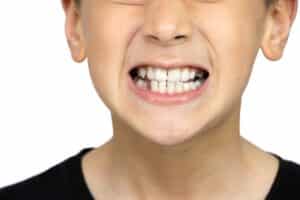
Mind and Mouth: The Psychological Factors Behind Bruxism
Stress is a significant factor associated with bruxism. Perceived stress, which refers to how individuals perceive and interpret stress, is strongly related to bruxism.

Stress is a significant factor associated with bruxism. Perceived stress, which refers to how individuals perceive and interpret stress, is strongly related to bruxism.

Bruxism is a common condition in which an child involuntarily grinds, clenches, or gnashes their teeth, usually during sleep. Children may also grind their teeth during the day, although it is less common.

Sign up to receive email updates, fresh news, and more.
All rights reserved. Our website services, content, and products are for informational purposes only. The Sleep and Respiratory Scholar does not provide medical advice, diagnosis, or treatment. See additional information.
Sign up for the latest in sleep and respiratory articles to improve your practice.